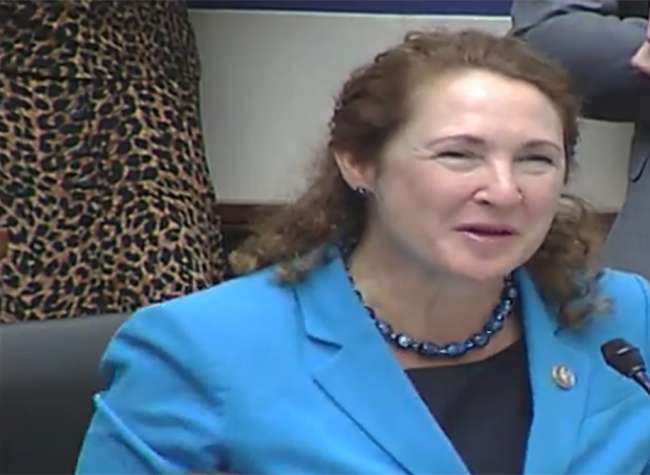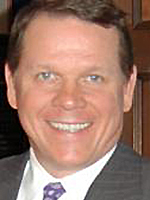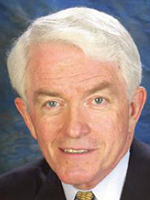Senior Reporter
Caucus Created to Keep Focus on Infrastructure Investment

A new caucus designed to call on congressional leaders to advance policies that modernize outdated infrastructure recently was endorsed by prominent transportation policymakers in the U.S. House.
Republican Rep. Sam Graves of Missouri, chairman of the Highways and Transit Subcommittee, and Transportation and the Infrastructure Committee ranking Democrat, Rep. Peter DeFazio of Oregon, praised the Congressional Infrastructure Caucus that recently was established by Rep. Elizabeth Esty (D-Conn.), a member of the Transportation and Infrastructure Committee.

Graves
“Anything that raises the visibility and awareness of the state of our nation’s infrastructure is a good thing,” Graves said Nov. 7, in a statement to Transport Topics. “The more members that are interested in infrastructure, the more likely we are to pass an infrastructure package.”
DeFazio and Graves will be among the key policymakers tasked with crafting an infrastructure policy bill next year. And, while most transportation panel members belong to other caucuses with somewhat similar objectives, they agreed there was room for having another forum in which to sound the alarm on the looming infrastructure funding crisis.
“[Rep.] Esty has partnered with both Democrats and Republicans on smart policies to rebuild and renew our nation’s infrastructure. I’m happy to be a member of the Infrastructure Caucus and look forward to working more closely with the caucus on innovative solutions to create jobs and rebuild America,” DeFazio told TT.
The authorization of a federal account that helps states maintain highway projects expires in about three years.
The federal government’s long-standing reliance on fuel taxes used to help maintain surface transportation corridors is no longer a sustainable source of funding, Esty argued during a transportation hearing Oct. 11. Esty often has joined DeFazio in calling for a long-term funding fix for infrastructure projects and repairs to outdated corridors that contribute to congestion.
“The world is changing. Cars are more efficient. We didn’t index the gas tax. We’re having alternative fuels,” the congresswoman said, noting she and other lawmakers would consider alternative funding options to pay for infrastructure projects.
The federal tax on diesel has been 24.4 cents per gallon, and 18.4 cents per gallon for the tax on gas for more than two decades.
Working with Esty to establish the caucus last month were Republican Reps. John Duncan of Tennessee, and Garret Graves of Louisiana, as well as Democrat Rep. Sean Patrick Maloney of New York. They plan on outlining the caucus’ agenda for next year in the next few weeks, an aide told TT.
Labor interests, the U.S. Chamber of Commerce and the American Society of Civil Engineers are among those supportive of the caucus.
“Rebuilding our crumbling infrastructure isn’t a Democratic issue or a Republican issue, it’s an American issue, and it’s one that we should all come together to support,” AFL-CIO President Richard Trumka said of the caucus shortly after its formation. “With skilled workers ready to do the work, it’s time for Congress to move forward to create good-paying jobs and to build an infrastructure we can all be proud of.”

Donohue
“The time for federal action is long overdue, so we welcome the creation of the Congressional Infrastructure Caucus as a new ally to promote bipartisan action on this critical issue,” U.S. Chamber of Commerce President Tom Donohue said.
Trump administration officials indicated an infrastructure funding plan would be revealed after Congress advances an overhaul of the tax code. Brief details about the plan propose accessing $200 billion in direct federal funding as a way to incentivize $800 billion from investors over 10 years.
This year, the American Society of Civil Engineers gave the country’s infrastructure a near-failing grade, and the group noted $1 trillion would be insufficient for modernizing the transportation system. Like nearly all other stakeholders, the engineers called on the White House and Congress to increase taxes on fuel. Highways and bridges scored poorly in their quadrennial report card.
“The Congressional Infrastructure Caucus is an example of the bipartisan leadership we need to improve our infrastructure through investment and thoughtful policymaking so that it’s built for the future,” said Kristina Swallow, the society’s president.

